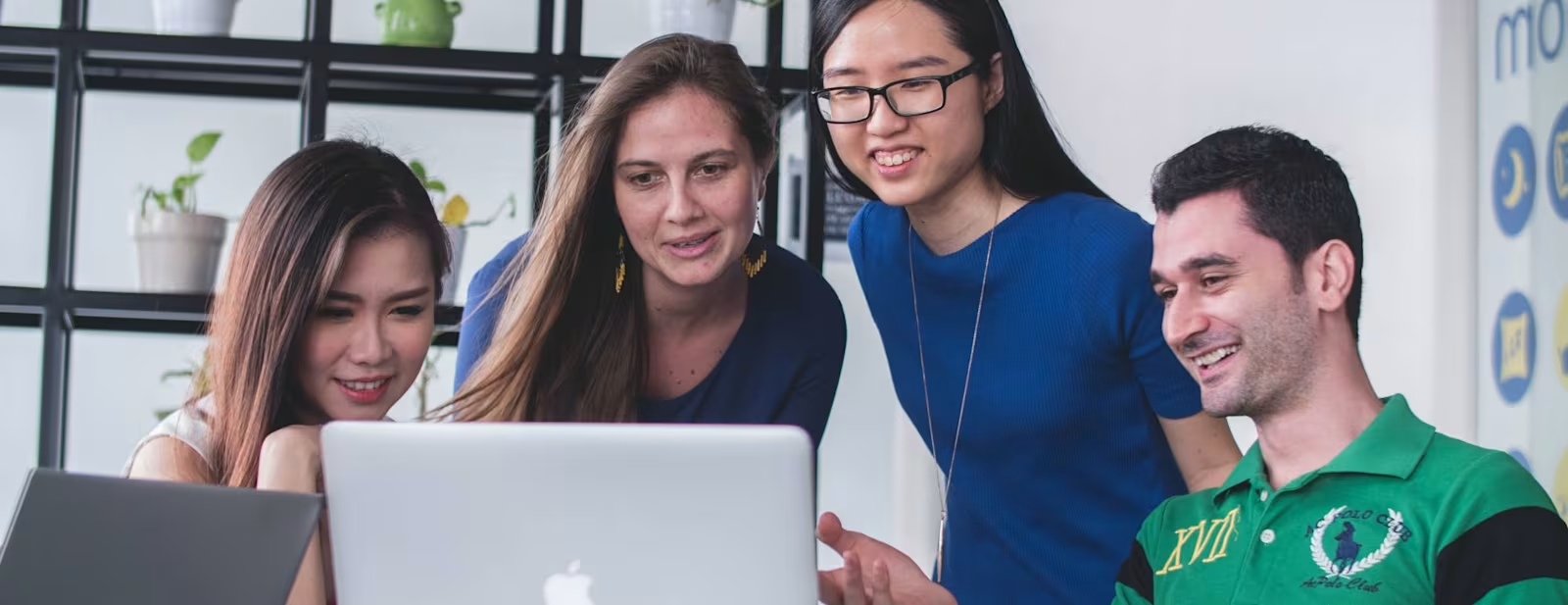How to study effectively
If you’re an international student trying to make the most of your educational opportunities, studying will be high on your list of priorities.
In this insightful blog post, we’ll walk you through, how to study, how to study for exams, study tips, how to be motivated to study and how to make studying fun.
So once you’ve stocked up on all these top tips, you can hit the books and ace those exams!
Table of contents

Why do I get distracted so easily when studying?
One of the hardest parts of studying is learning how to study effectively and how to motivate yourself to study.. Your mind may be going a million miles a minute and you just can’t seem to focus.
Often, this type of procrastination is due to a lack of preparation or organisation. Even your environment can play a role in your overall motivation. If you don’t study somewhere quiet and distraction-free, you’re unlikely to get done what you need to in time.
You may also just be battling an overall lack of motivation. You knew when you signed onto the course that it was something you really wanted to do but, now that it’s come to the details, you might just feel an absence of the ‘omph’ you need to keep going.
You may also be missing some of the requisite course materials that you need to ensure that you’re studying effectively. Make sure you get your textbooks and syllabuses ready before you take the next step. Or, read on to find out more about common studying distractions you might face.
Common studying distractions
So, now you want to know how to not get distracted while studying. Learning to concentrate on your studies is a muscle that you’ll need to exercise all throughout your academic journey. One of our best top tips for studying is to create an environment for yourself that’s free of distractions.
Some of the most common distractions that you might find at home are as follows:
Mobile phone usage - The smartphone is both a blessing and a curse when it comes to studying effectively. It allows you to get research and read your notes at the touch of a button, but it will also generate unhelpful notifications that quickly take you off task. Our top tip for studying is to put your phone on airplane mode (or, better yet, turn it off) and keep the app-based distractions to a minimum.
Hunger - We all know what it’s like to get a bit ‘hangry’ (so hungry that you’re angry). Keep your stomach and your mind happy, too, by feeding it with all the nutrients you need to keep going. If you need a quick burst of energy, carbs are the way to go. But protein-based meals will also help keep you fuller for longer.
Television - Maybe for you the quietest place to study is your sitting room. The danger there though is that the remote is nearby, just begging for you to begin streaming that TV show that’s been on your watchlist for ages. If you can, face yourself away from the TV and ask someone who lives with you to hide the remote, so that you can remove the temptation altogether.
Noise - Noise is a common distraction when it comes to studying. If you live on a busy road, or have a lot of family members around, you might want to move yourself somewhere a little quieter, so that you can actually focus. Going to the library, for example, can help cut this distraction out entirely. Or, if you can’t go somewhere else, you can invest in some noise-cancelling headphones to get your head in the game.
Friends and family - The same friends and family that encouraged you to start your studies in the first place can be the first ones keeping you from them! Put a sign on your door if you have to and set all your online chats to ‘Away’ to keep acquaintances from popping up just as you’ve got into the zone.
How to motivate yourself to study
You’ve started your course, and found your distraction-free environment. It’s time to get down to business and motivate yourself to study. Some of our favourite studying tips dig into the intrinsic motives that allow you to find a higher purpose to why you’re doing it. These tips on how to study can help you grind through those days where you just ‘aren’t feeling it’.
Find your ‘why’
Remember what first inspired you to start your course, and remind yourself of those reasons – daily if you have to. With the finish line in sight, you can then take the next steps towards your goal.
Break up your study periods into manageable chunks
You don’t have to tackle the whole assignment all at once. Give yourself periodic breaks and allow yourself chunks of time of intense focus, so that you can keep going without exhausting yourself.
Create a designated study space
Humans are creatures of habit, and the act of simply positioning yourself in a regular space where you can get work done can do wonders for your studying.
Study with friends
You don’t have to do it all alone! Finding a ‘study buddy’ can also help improve your relationship with your studies, while maintaining those all-important supportive friendships, too.
Use nice stationary
Maybe what’s keeping you from studying is just not feeling all that inspired by the tools you use to do it. Get some aesthetically pleasing stationery to get yourself in the right mindset before you start.
How to make studying fun
One of the ways you can teach yourself to be motivated to study is to make studying fun. Studying doesn’t have to be regimented or boring, with these studying tips, you can make it something that’s surprisingly enjoyable.
Turn it into a game
Turning your study periods into a game format can revitalise your love of learning. One way to do this is to create flashcards and give yourself points whenever you correctly guess the definition of what’s on the card. You could even try a study-themed version of ‘Truth or Dare’, where the dares are relevant to your subject - like ‘act out a soliloquy’, for example, if you are studying English literature.
Combine studying with your favourite activities
One aspect of learning to study effectively is to realise that you don’t have to be chained to a desk the whole time. If you are studying biology, for one, you could get out in nature and make observations about the plant and animal life you see. Or, you could load up your smartphone with your favourite podcast related to your subject, and go for a brisk walk to energise you.
Does music help you study ?
Still need another suggestion for how to focus on your studies? As it turns out there’some science behind the popular YouTube stream: ‘lo-fi beats to study/relax to’.
Some studies suggest that music can reduce your stress levels. This will ultimately will help you complete your task and make the whole process much easier.
Another 2019 study also recognised music as triggering the ‘reward centre’ in our brains, so at the very least it can be a hugely motivating factor when it comes to your study dedication.
WorldRemit makes studying abroad easier
We hope these study hacks helped, but there’s more to our blog than just these insights. WorldRemit is an online money transfer service that’s committed to make cross-border payments swifter and simpler. We also care about our customers so much so that we want to make their lives abroad even easier.
Once you’ve settled into your new routine in your life abroad, you can start to put a little bit of money aside each month to send back home. Even a little bit sent every month can go a long way to make sure that your friends and family members have the same opportunities to work and study, just as you have now in your new home country.
We’ll even cut the cost* of your first 3 transfers when you use code 3FORYOU. Thanks for reading and we hope that, together, we can make a world of difference. *WorldRemit makes money off the exchange rate. FX rates are subject to change.
The contents of this blog post do not constitute legal or financial advice and are provided for general information purposes only. If you require specific legal and / or financial advice, you should contact a specialist lawyer or financial advisor. Information true at time of publishing.






